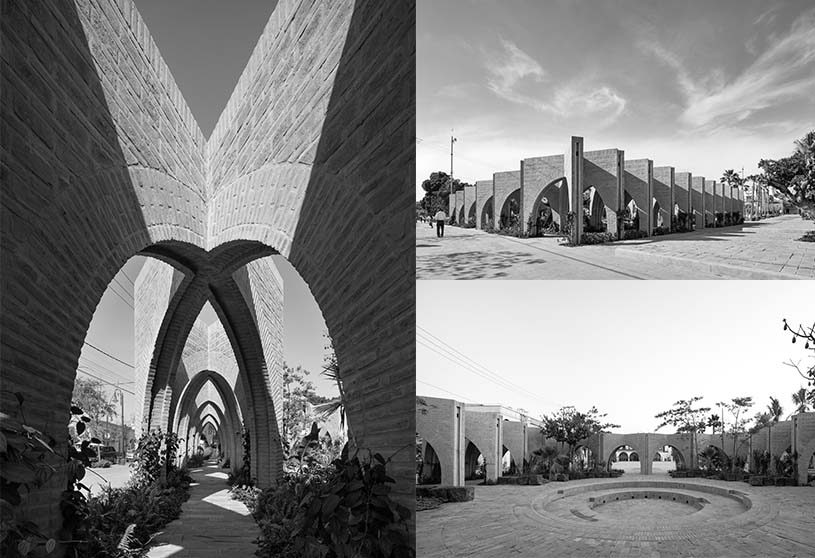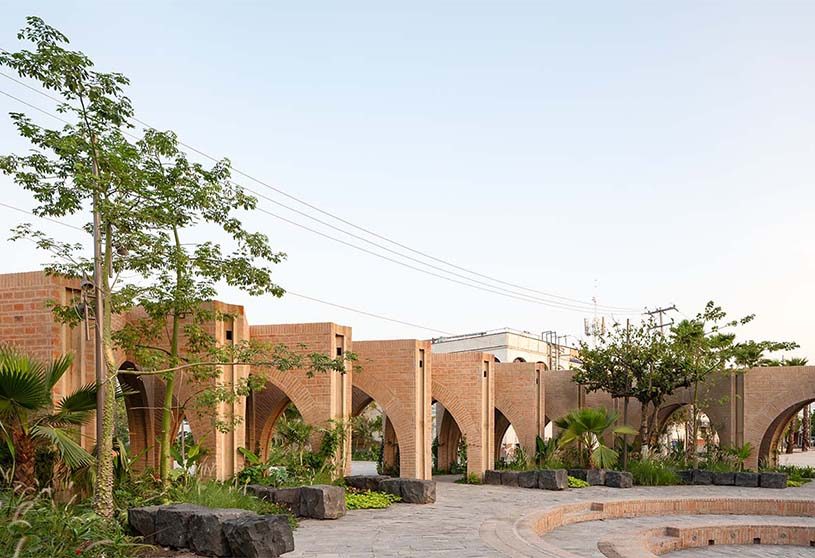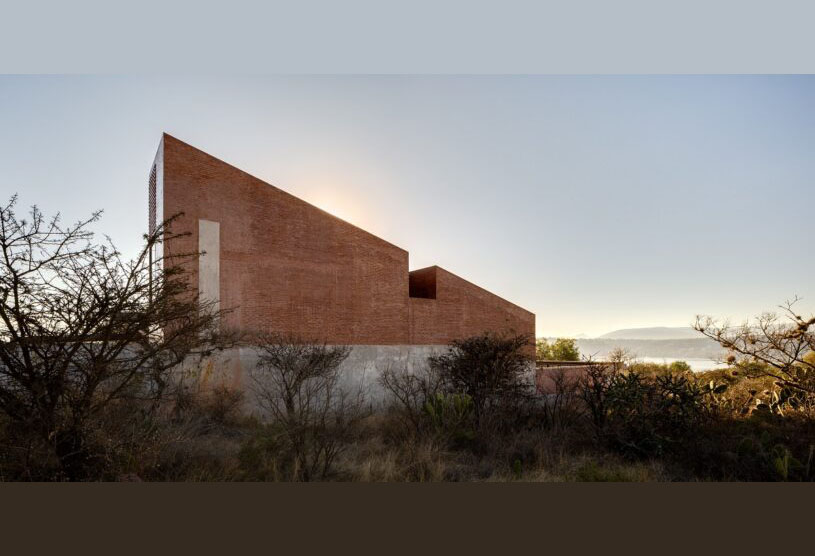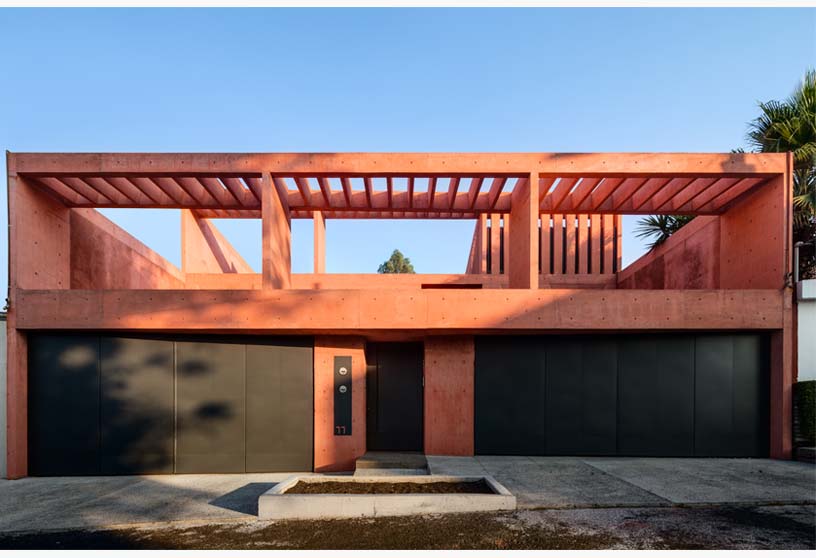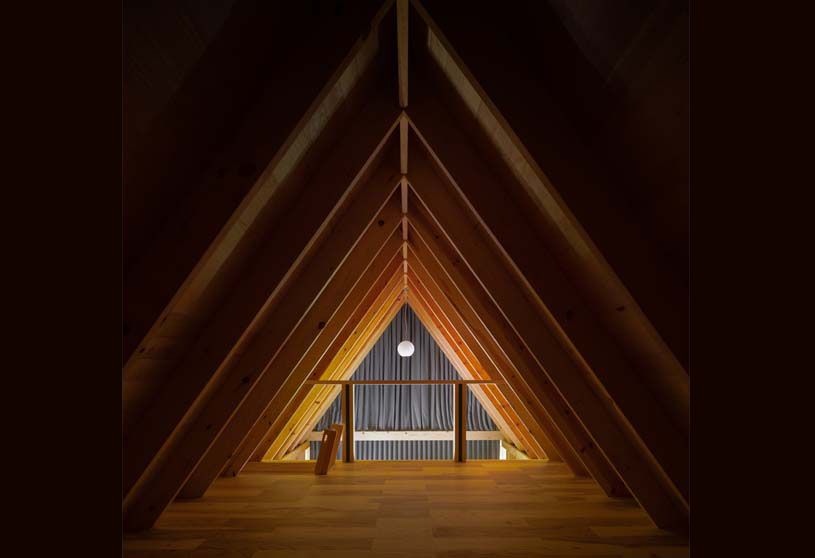(“Text as submitted by Architect”)
Ignacio del Río
Ignacio del Rio currently works as director of operations for Estudio MMX, is a consultant for various studios and a guest critic at various academic institutions in Mexico and abroad. Along with Jorge Arvizu, Emmanuel Ramírez and Diego Ricalde, he directs Estudio MMX; an urban and architectural design studio based in Mexico City.
Ignacio is an architect with honors from UNAM. He has worked in renowned architecture studios in Mexico and Spain, among which are the Alberto Kalach Workshop and Central de Arquitectura in Mexico, as well as DL + A and Molestina Architekten in Spain. He has a very solid experience in design and development of construction documents, as well as control of work teams. He has been invited by various national and international institutions to grade and offer conferences on topics related to this experience, as well as the work and projects of Estudio MMX.
Ignacio has received numerous awards, including the Young Creators Grant (Fonca), and the First Prize in the XI Arquine International Competition. In conjunction with Estudio MMX, they have received international awards such as the Architectural League Prize for Young Architects, the Architectural Record Design Vanguard Award, the National and International Cemex Award and the award. Highly Commended Emerging Architecture from The Architectural Review, among a other public and private competition awards.
Emmanuel Ramírez
Emmanuel Ramírez is project director at Estudio MMX and works as a consultant for various studies and academic institutions in Mexico and abroad. Along with Jorge Arvizu, Ignacio del Rio and Diego Ricalde, he directs Estudio MMX; an urban and architectural design studio based in Mexico City.
Emmanuel is an architect with honors from UNAM and a Master in Urban Design from The University College of London (UCL). He has worked in various architecture studios, among which stand out LBC and Alberto Kalach’s Architecture Workshop, as well as SOM | Skidmore, Owings & Merril and David Chipperfield Architects in England. He has developed his disciplinary interests in the fields of strategic urban design, master plans, and architectural design. He has been a professor at IBERO and at UTA Arlington and has been invited by multiple national and international institutions to grade, teach and lecture on topics related to his interests, as well as the work and projects of Estudio MMX.
Academically, Emmanuel has received numerous awards, including the Young Creators Grant (Fonca) and, in conjunction with Estudio MMX, he has received international awards such as the Architectural League Prize for Young Architects, the Architectural Record Design Vanguard Award, the Cemex Award National and International and the Highly Commended Emerging Architecture Award from The Architectural Review, among a few other public and private competition awards.
Diego Ricalde
Currently, Diego Ricalde is a professor of Architecture and Urbanism at the Iberoamerican University of Mexico City, where he directs the White Chair; a degree design workshop focused on the urban and territorial complexities of the Mexico Basin and on developing architectural proposals that incorporate digital tools and, with them, complex thought processes in design processes.
Diego works as a consultant for various studies and academic institutions in Mexico and abroad and together with Jorge Arvizu, Ignacio del Rio and Emmanuel Ramírez, he directs Estudio MMX; an urban and architectural design studio based in Mexico City.
Diego is an architect with honors from UNAM and a Master in Architecture and Urbanism, with distinction from the Architectural Association School of Architecture. He has worked in Mexico, Switzerland and Italy developing his disciplinary interests in different fields, including urban and strategic design, as well as architectural design and computational design. He has been invited by multiple national and international institutions to grade, teach and give lectures on topics related to these interests as well as the work and projects of Estudio MMX.
Academically, Diego has received numerous awards, including the Young Creators Scholarship (Fonca), the Abraham Zabludovzky Prize, the Cemex Marcelo Zambrano Scholarship and the Silver Medal of the Biennial of Mexican Architecture. In conjunction with Estudio MMX, it has received international awards such as the Architectural League Prize for Young Architects, the Architectural Record Design Vanguard Award, the National and International Cemex Award and the Highly Commended Emerging Architecture award from The Architectural Review, among some other contest awards public and private.
Pratice Ideology
Every intervention is immersed in a context or environment and is subject to supporting specific content. The relationship between these three elements; environment, intervention and content, is the force that determines the exploration and generation process of each idea. In this way, it is not the intervention itself, but the relationship with its context and the implications in its content that becomes our true object of study.
Conceptualization deliberately moves away from the formal generation of the object itself, to complement and complement both its environment and its content. The interventions naturally become integral extensions of a set whose properties are redefined and articulated through the design process.
This approach has consequently led us to the continuous reflection on the territories and the processes of generating public and private space, the definition of the limits between interior and exterior and the ambivalence implicit in these dichotomies, leading to a constant revision of the different degrees of relationship and interaction between the content of the interventions and their environment.
The manifestations of our work are the result of giving coherence to the elements that define them. Articulating its components as part of a set within a larger context than the intervention itself, the work methodology focuses on the search for base logics that allow us to give meaning and coherence to the system in question. These logics, or working mechanisms, are not generated as part of a direct design process, but on the contrary, they are found from a close look at the essence of the multiple everyday systems that surround us. Our work then occurs, in an área of adaptation and translation of these logics to generate a comprehensive and coherent system within a specific search.
